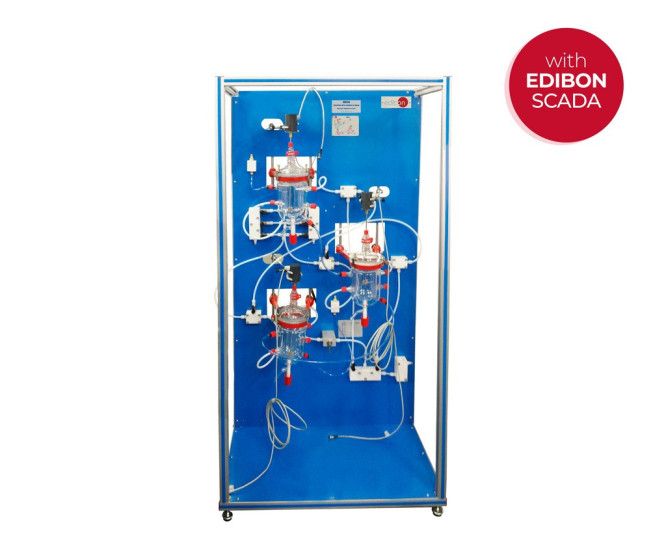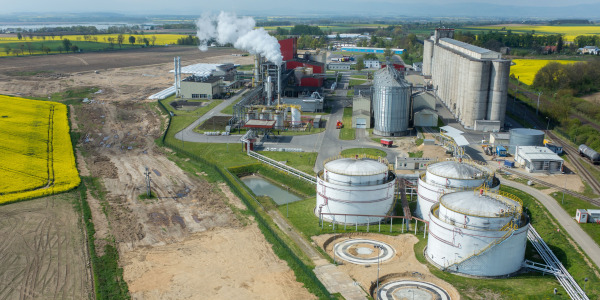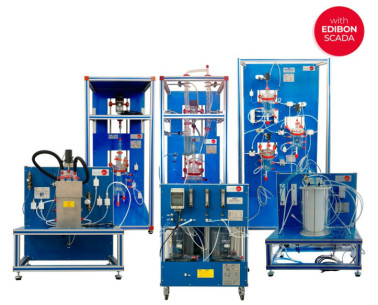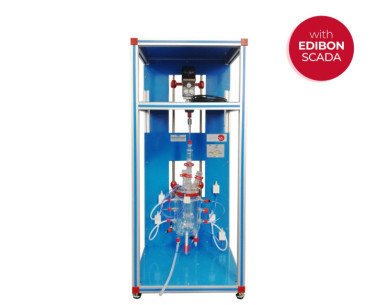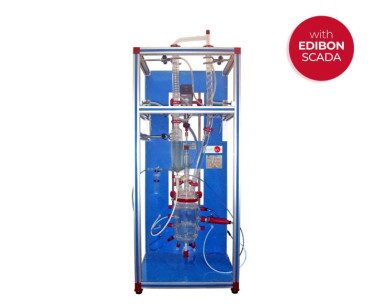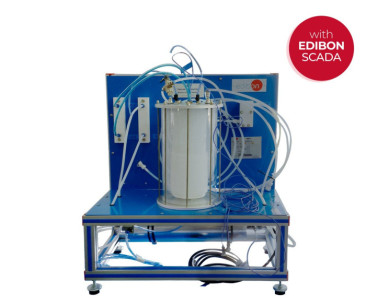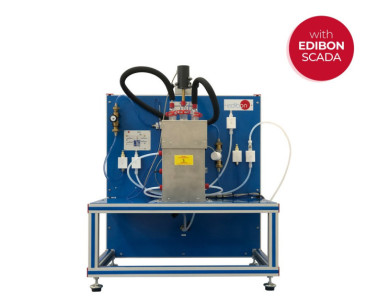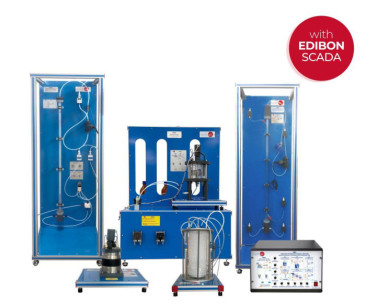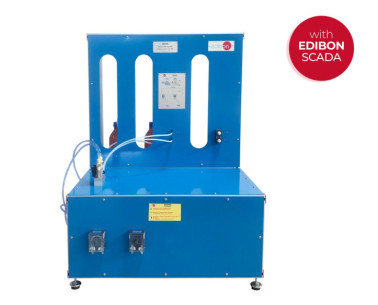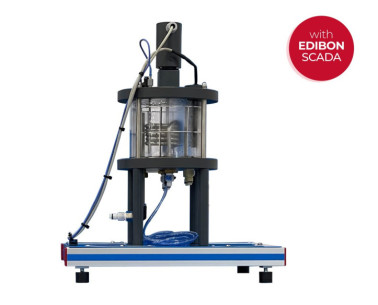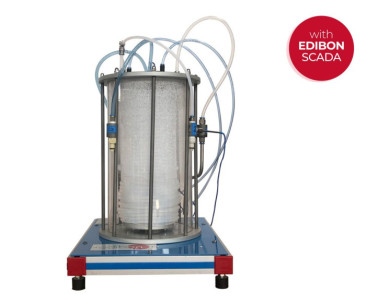QRSA Rührkesselreaktoren in Serie
INNOVATIVE SYSTEME
The Series Stirred Reactors, "QRSA," designed by EDIBON, provide the ability to investigate the kinetics of liquid-liquid homogeneous reactions and conduct experiments with multiple reactors in series. This configuration allows the outlet flow of one reactor to become the inlet flow of another, optimizing processes and enabling flexible experimentation with one, two, or three reactors, facilitating a comprehensive understanding of the process.
Erweiterungen
Laboratorien
ÄHNLICHE NEUIGKEITEN
ALLGEMEINE BESCHREIBUNG
The Series Stirred Reactors, "QRSA," designed by EDIBON, provide the ability to investigate the kinetics of liquid-liquid homogeneous reactions and conduct experiments with multiple reactors in series. This configuration allows the outlet flow of one reactor to become the inlet flow of another, optimizing processes and enabling flexible experimentation with one, two, or three reactors, facilitating a comprehensive understanding of the process.
This unit is valuable for calculating kinetic constants, comparing theoretical and experimental conversion values, and analyzing mixing effects in chemical reactions. Additionally, it enables the calculation of the activation energy of the studied reactions, driving the advancement of knowledge in chemistry and process engineering. Furthermore, the data obtained using reactors in series can validate mathematical models, thereby improving accuracy in process engineering.
Its versatility and ability to perform various practices make it an invaluable resource in education, research, and industrial development.
To work with this reactor, the Base and Service Unit, "QRUBI," is required, which supplies the necessary reagents and thermostatic water for proper operation.
These Computer Controlled Units are supplied with EDIBON Computer Control System (SCADA), and includes: The unit itself + a Control Interface Box + a Data Acquisition Board + Computer Control, Data Acquisition and Data Management Software Packages, for controlling the process and all parameters involved in the process.
ÜBUNGEN UND GEFÜHRTE PRAKTIKEN
GEFÜHRTE PRAKTISCHE ÜBUNGEN IM HANDBUCH ENTHALTEN
- Determination of the ionic conductivities.
- Continuous operation with only one reactor.
- Continuous operation with only one reactor with mixture effects.
- Continuous operation with the three reactors.
- Sensors calibration.
MEHR PRAKTISCHE ÜBUNGEN FÜR DAS GERÄT
- Many students view results simultaneously. To view all results in real time in the classroom by means of a projector or an electronic whiteboard.
- Open Control, Multicontrol and Real Time Control. This unit allows intrinsically and/or extrinsically to change the span, gains, proportional, integral, derivate parameters, etc, in real time.
- The Computer Control System with SCADA and PID Control allow a real industrial simulation.
- This unit is totally safe as uses mechanical, electrical and electronic, and software safety devices.
- This unit can be used for doing applied research.
- This unit can be used for giving training courses to Industries even to other Technical Education Institutions.
- Control of the unit process through the control interface box without the computer.
- Visualization of all the sensors values used in the unit process.
- By using PLC-PI additional 19 more exercises can be done.
- Several other exercises can be done and designed by the user.
ERGÄNZENDE AUSRÜSTUNG
Reaktor mit Recirkulation für Korrosive Medien von 250L, Kontrolliert von Computer und Touchscreen
Schulungsanlage für chemische Reaktoren, computergesteuert (PC)
Basis- und Serviceeinheit für QRQC
Isothermer Reaktor mit Rührwerk
Isothermer Reaktor mit Rührwerk und Destillation
Turbinenreaktor
Adiabatischer und isothermer Reaktor
Chemische Reaktoren, computergesteuert (PC)
Basis- und Serviceeinheit für QRC
Kontinuierlicher Rührkesselreaktor für QRC, computergesteuert (PC)
Turbinenreaktor für QRC, computergesteuert (PC)
QUALITÄT
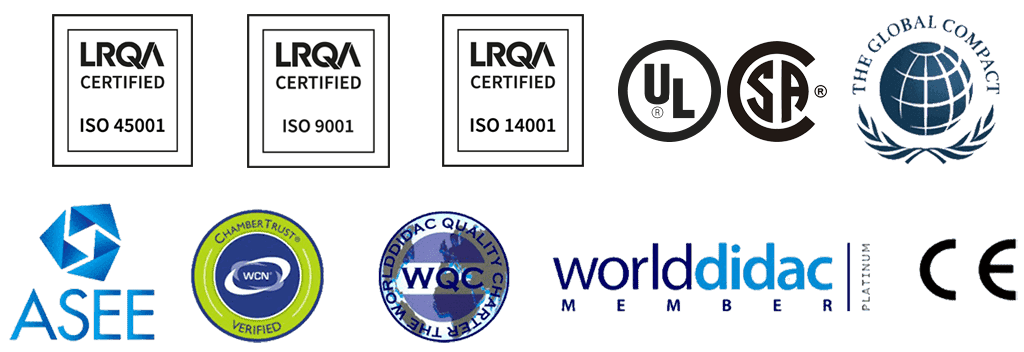
KUNDENDIENST

 Cookie-Präferenzen
Cookie-Präferenzen

